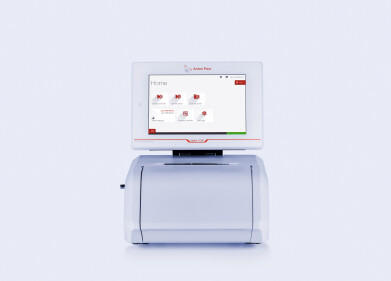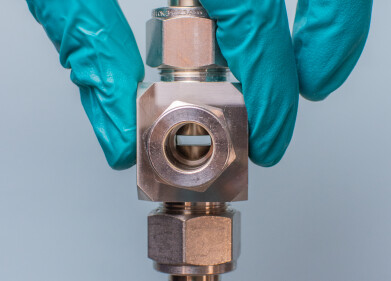Mass Spectrometry & Spectroscopy
How Is Cannabis Tested for Pesticides?
Mar 26 2022
From hemp russet mites and aphids to corn earworms, cannabis is plagued by its fair share of pests. As a high-value crop, cannabis is often sprayed with multiple pesticides to keep these insects at bay. Unless marketed as organic, most medical cannabis products have been exposed to multiple pesticides, some harmless and others considered more dangerous.
With hundreds of different products available to growers, testing for pesticides is a complex and multifaceted process. The following techniques offer a snapshot of how scientists prepare samples and test medical cannabis for pesticides:
-
High Performance Liquid Chromatography (HPLC)
Used across the food and beverage sector, HPLC is one of the most useful methods for detecting pesticides in medical cannabis.
-
Gas Chromatography/Mass Spectrometry (GC/MS)
In a single analytical run, GC/MS can identify and quantify multiple pesticides in medical cannabis samples.
-
Liquid Chromatography/Mass Spectrometry (LC/MS)
High sensitivity and selectivity make LC/MS one of the most useful methods for pesticide analysis.
The hidden dangers of cannabis pesticides
Unsurprisingly, many experts have raised concerns regarding the use of certain pesticides on cannabis crops. This includes organophosphate pesticides, which are highly effective at killing pests but can cause issues such as confusion, memory loss and chronic nausea in humans. For patients using cannabis for medical reasons, these side effects can be particularly concerning.
“If [the DPR] does not have this kind of data, which is extremely expensive to produce and to evaluate, then it should use its statutory authority to embrace a precautionary approach,” warns Jay Feldman, executive director of non-profit organisation Beyond Pesticides.
“They are establishing a false sense of security regarding the allowed residues, given that they have not looked at the aggregate cumulative risk of dietary and nondietary exposure in combination with cannabis residue,” he adds.
Calls to regulate pesticide use for cannabis crops
While Canada and US states such as California have taken steps to regulate pesticide use for cannabis crops, experts say more needs to be done. “Down the line we’d like to see federal change in the next hopefully five to ten years,” says Luke Khoury, senior scientist at Californian cannabis testing facility, Sonoma Lab Works. “I think that’s when we’ll see a push to say, ‘Let’s get definitive answers on what these levels should be and which compounds really provide the highest risk to consumers.”
Ultimately, scientific testing plays a fundamental role in protecting consumers and ensuring patients can harness the therapeutic benefits of cannabis in a way that’s safe and free from harmful chemicals and toxins.
While humans have been harnessing the medicinal properties of cannabis for centuries, it’s only recently the plant has enjoyed a renaissance. Want to know more about medical cannabis? We cover everything from the ancient origins of medical cannabis to the latest breakthroughs and developments in ‘Medical Cannabis - Testing, Analysis & Identification.’
Digital Edition
Lab Asia 31.6 Dec 2024
December 2024
Chromatography Articles - Sustainable chromatography: Embracing software for greener methods Mass Spectrometry & Spectroscopy Articles - Solving industry challenges for phosphorus containi...
View all digital editions
Events
Jan 22 2025 Tokyo, Japan
Jan 22 2025 Birmingham, UK
Jan 25 2025 San Diego, CA, USA
Jan 27 2025 Dubai, UAE
Jan 29 2025 Tokyo, Japan



















